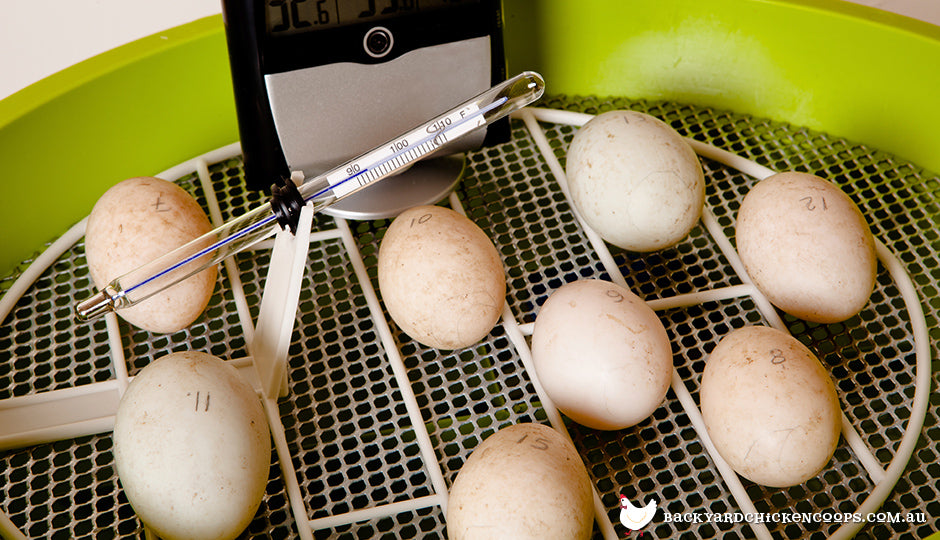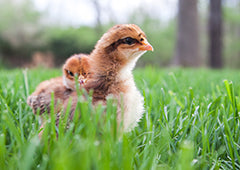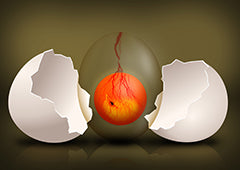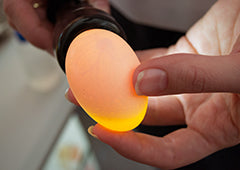Turning the eggs is a crucial part of the incubation process- it must be done to ensure that the embryo does not stick to the sides of the shell. There are two main ways in which this is generally done - either through doing it by hand, or using an automatic egg turner.
Which method is better generally comes down to a personal preference of how involved you want to be in the incubation process.
What is egg-turning?
Egg turning involves picking the egg up, rotating it over and placing it back down. This should be done a minimum of twice a day, to prevent the embryo sticking to the sides of the shell.
Turning the eggs by hand.
The main benefit of turning the eggs by hand is generally the satisfaction that comes with doing it yourself! Some people like to be heavily involved in the incubation process, and turning the eggs is a great way to contribute to the embryo developing process.
It is time consuming, as it must be done multiple times a day in order for the embryo to stay unstuck - but there’s nothing wrong with doing it by hand if thats what you want to do!
A great trick that many people hand turning use is marking opposite sides of the egg with an X and an O. This ensures that you don’t lose track of which side to flip to each time you turn the eggs.
Turning the eggs automatically.
Most modern incubators come with an in built egg turner, that will automatically turn the eggs multiple times a day. You don’t physically have to turn or touch anything yourself - you can just sit back and watch the machine do it all for you!
Using an automatic egg turner is the best way to ensure the eggs are flipped accurately and consistently - which is always a plus, as the development of embryos is a delicate process! However, it is less involved - again it comes down to personal preference.
There is nothing wrong with turning the eggs by hand or using an automatic egg turner - both will get the job done. It just depends whether you want to be more hands on in the incubation process, or whether you’d just like to sit back and watch eagerly as the embryos develop.
Our incubators come fitted with an automatic egg turner, so you can go about your daily business knowing that your incubating eggs are being turned on time, everyday.
There are so many other factors to consider before deciding to bring new life into the world. It really is a joyful and eggstraordinary experience for the whole family and nothing compares to seeing fluffy little hatchlings peck out of their shells. However, getting to this perfect moment does come with a fair few challenges and risks which can be stressful and overwhelming, especially without the right information.
This is why I recommend Chickenpedia to all of my readers. They have created the brilliant Hatch A Plan course to help you successfully incubate and hatch happy and healthy chicks. Their course offers the best advice to ensure you build your knowledge to avoid tragic disasters, as these little ones can be so sensitive to temperature! You can learn about the conditions and equipment needed to confidently bring new life into the world.
As chicken keepers, we want to do an eggcellent job when caring for our feathered friends. Many chicken keepers struggle to handle chicken health or behaviour issues, especially in the first few years of having a flock. Chickenpedia have comprehensive online courses on everything you didn’t know you need to know and then some more! From raising baby chicks to feeding and behavior, you’ll find beginner-friendly courses that’ll give you the knowledge and confidence to successfully look after your chickens for years to come.
These courses are exclusive to members only, so flock to Chickenpedia today!


















